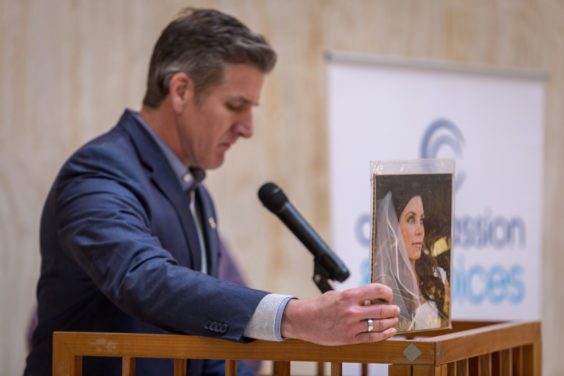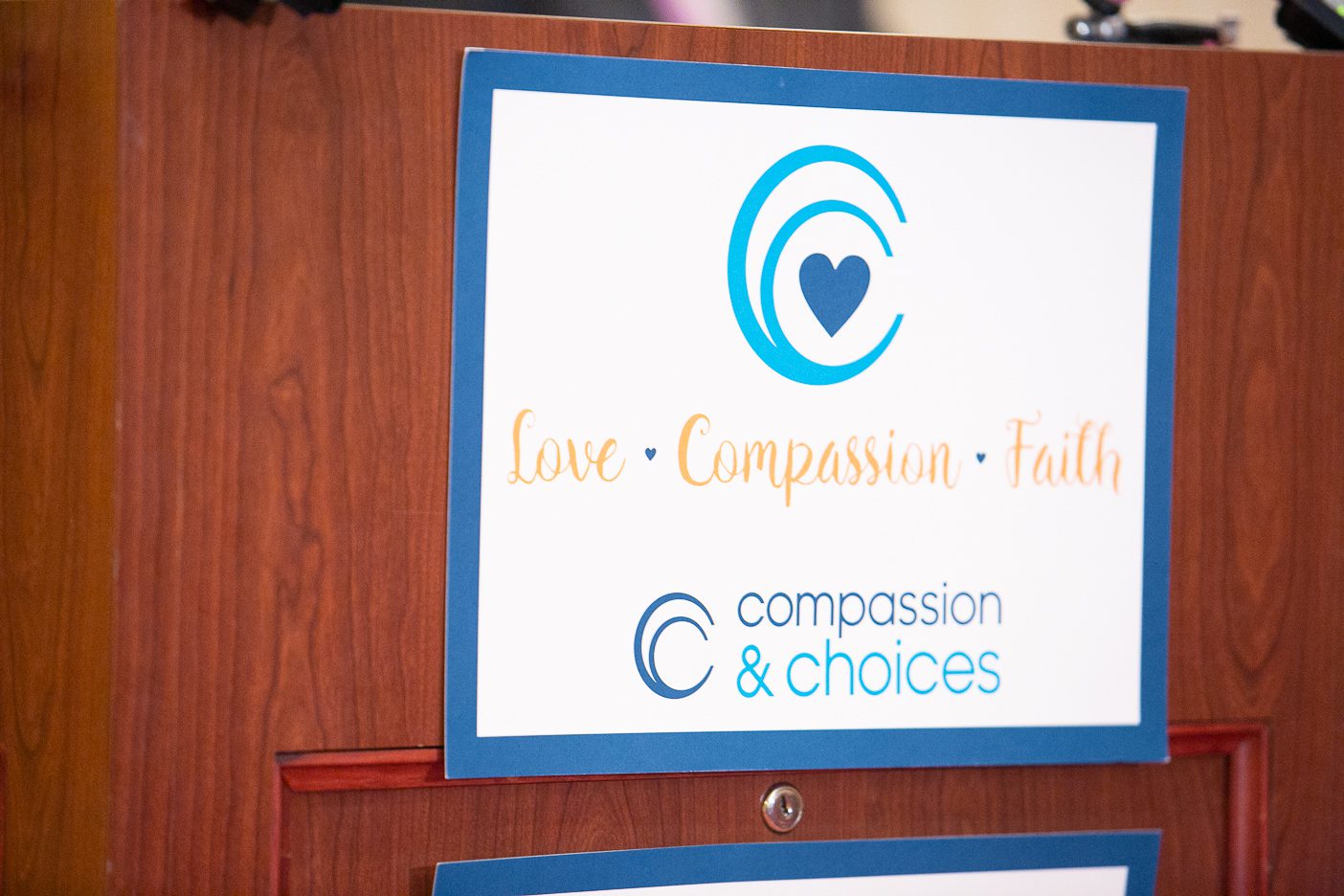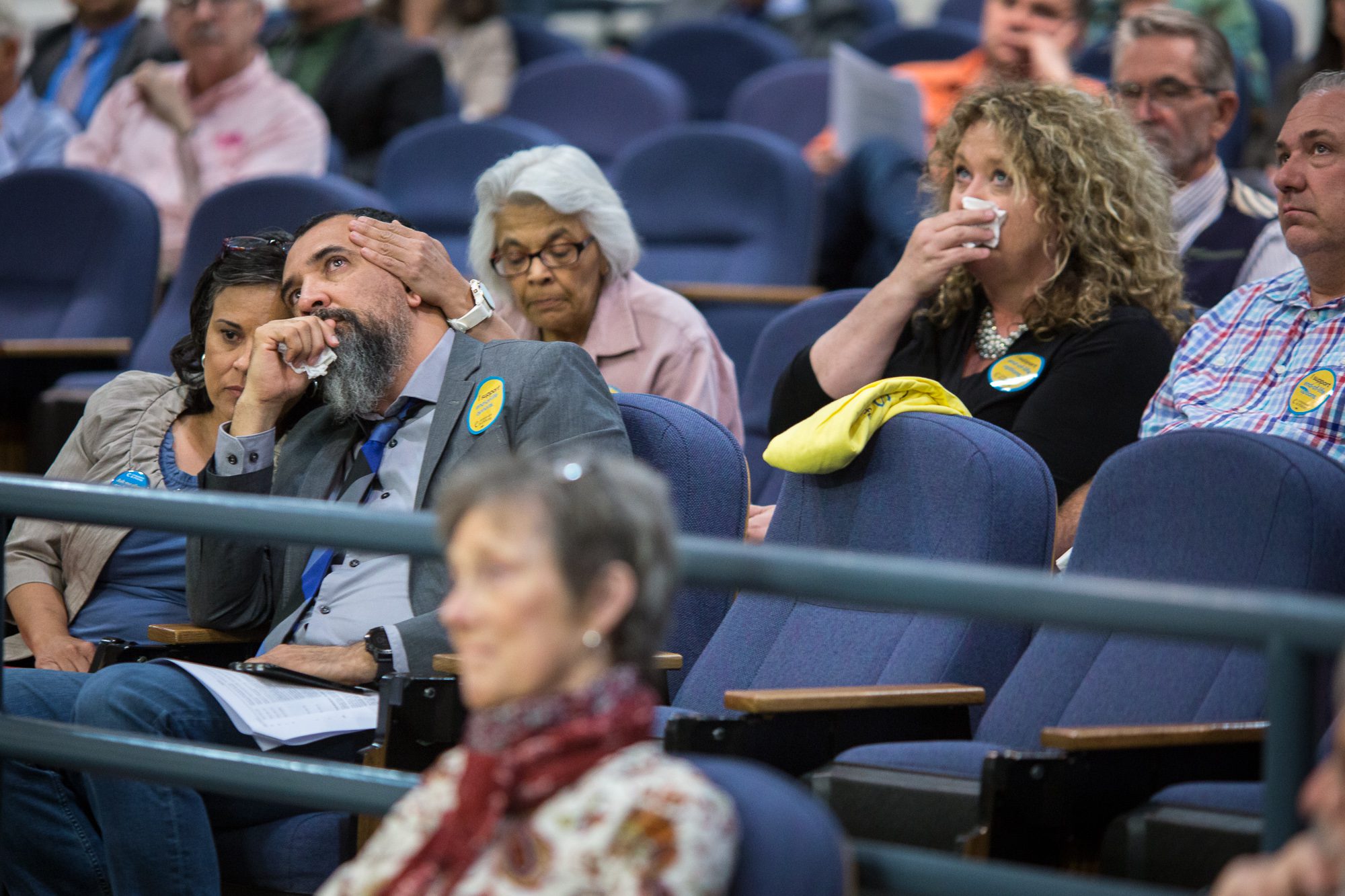Who Are We?

Dan Diaz, Brittany Maynard’s widower and medical aid-in-dying advocate
Catholics for Compassion is a group of faithful Catholics who are committed to expanding end-of-life options for individuals diagnosed with terminal illness. Many of us know firsthand the pain of watching loved ones die, long, slow, painful deaths, and hope that future patients and their families will have more options available to them to relieve pain and suffering.
We believe that death is a deeply personal journey and that the individual facing it, along with their family, should have all medically available options available to them. Facing death is a deeply personal journey. We want each person to be able to,
along with their family, decide how their faith guides them at the end of their lives.
What Do We Do?
 Catholics for Compassion advises Compassion & Choices on Catholic engagement and supports the organization
in coordinating clear, passionate, but respectful actions and messages to equip Catholics and their families who are facing questions about suffering and the end of life.
Catholics for Compassion advises Compassion & Choices on Catholic engagement and supports the organization
in coordinating clear, passionate, but respectful actions and messages to equip Catholics and their families who are facing questions about suffering and the end of life.
We periodically engage with specific tactics and activities that build support for pro-medical aid in dying policies in key states, for instance through joining sign-on letters, submitting op-Eds, or letters to the editor, contacting policymakers,
and when future conditions allow, visiting legislative offices. This is all based on each person’s interests, comfort level, etc.
Why We Exist/Our Hope/Our Purpose

Advocates Jorge and Maria Otero at an Albuquerque, New Mexico City Council Meeting
We acknowledge and respect the concerns of the Catholic Church and faithful Catholics regarding the practice of medical aid in dying. We believe, however, that faithful Catholics need to be fully informed and have all of the options available to them so that they can together with their families make decisions informed by their faith.
We hope that by sharing our personal stories and providing resources to others about how our faith informs our views and why we volunteer with Catholics for Compassion, we will help people feel like they are not alone as they work through suffering through terminal illness or supporting a family member who is doing so.
We want others to know that faithful Catholics support all end of life options being available to all people in the final chapter of their life so that they and their families can decide what is best for them.
Frequently Asked Questions (FAQs)
What is end-of-life care? End-of-life care is specialized healthcare delivered in the final months or years of one’s life. Types of end-of-life care include:
- Palliative care is specialized medical care for individuals living with a serious illness. Palliative care can improve the quality of life for both the patient and their family.
- Hospice care focuses on providing care, comfort, and quality of life to individuals with a serious illness approaching the end of life.
- Medical aid in dying allows a mentally capable adult with a prognosis of six months or less to live to request a prescription from their doctor for medication to self-ingest to bring about a peaceful death.
Is medical aid in dying the same as assisted suicide or suicide? No. State legislatures and courts in states where the practice of medical aid in dying is authorized recognize medical aid in dying as differing from suicide, assisted suicide, or euthanasia. One such example of this recognition is in Montana, where assisted suicide is specifically illegal. In Baxter v. Montana, the Montana Supreme Court ruled that medical aid in dying provided to terminally ill, mentally competent adult patients, in no way violates established state law.
People who seek medical aid in dying are already actively dying and want to live, but are stricken by an incurable disease. The choice to seek medical aid in dying is a deeply personal one, and one’s personal faith should not limit another’s right to choose which end-of-life medical option is best for them and their families.
Is medical aid in dying the same as euthanasia? No. Medical aid in dying requires the patient to be able to take the medication themselves, remaining in control of the process, whereas euthanasia is an intentional act by which another person (not the patient) administers the medication. Both euthanasia and assisted suicide are illegal in jurisidictions where medical aid in dying is authorized.
How can I support medical aid in dying if my religion says that ending one’s own life is wrong? People who are able to seek medical aid in dying are already actively dying, and at most have less than six months to live. Like one’s faith, how a person chooses to navigate their end of life journey is a deeply personal choice. We acknowledge people’s individual beliefs, and believe that one’s faith should not limit one’s choice to decide which end-of-life option is best for her and her family. Particularly, the Catholic moral tradition has been clear that simply prolonging physical life is not required, especially when the means to accomplish prolonging life is “precarious and burdensome.” We affirm that one’s own conscience is the final arbiter of right and wrong.
One’s own conscience is the final arbiter of one’s own conduct.
Where is medical aid in dying authorized? Medical aid in dying is authorized in 11 U.S. jurisdictions:
- Oregon
- Washington
- Vermont
- Montana
- California
- Colorado
- Hawai’i
- New Jersey
- Maine
- Washington, D.C.
- New Mexico


